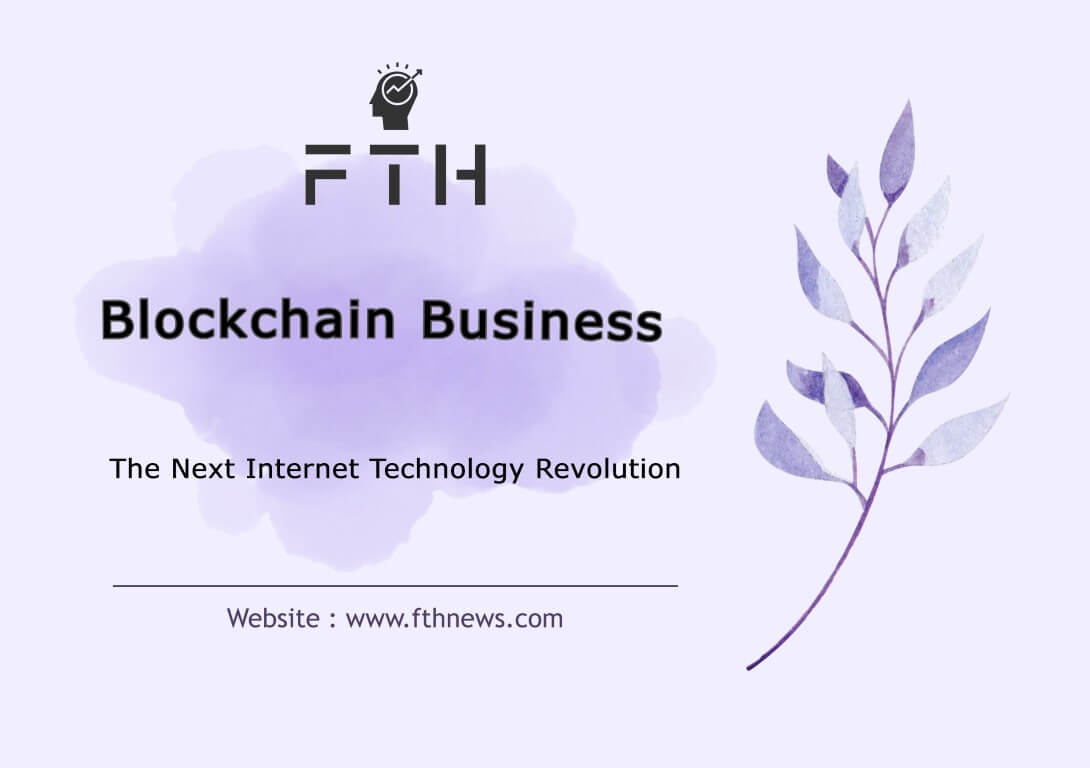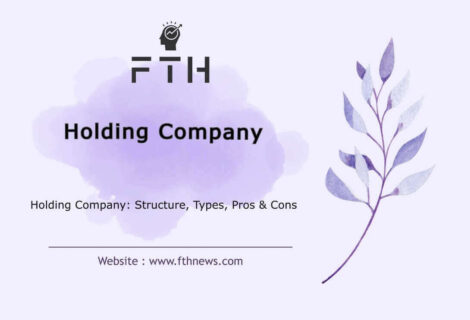
Blockchain Business: The Next Internet Technology Revolution
Blockchain Business and The world is advancing rapidly. While some may think that humanity has reached the peak of its civilization, there are still numerous opportunities for improvement and increased efficiency. This drive for change has taken on a new dimension with the emergence of blockchain technology.
we delve into the book “Blockchain Business” by William Mougayar. If you’re eager to become more acquainted with the next generation of the Internet and the ensuing transformation, join us as we explore this narrative to its conclusion.
What Exactly Is a Blockchain Business?
Understanding blockchain is essential to effectively utilize it. However, you don’t necessarily have to be a master of its intricate details. Think of it in terms of understanding the internet. When someone asks you, “What is the purpose of the Internet?” you don’t delve into the intricacies of its self-governing systems or network structures, nor do you explain search engine algorithms.
For someone unfamiliar with the internet, simply opening a search engine like Google, entering their query, and clicking the search button is all they need to know. In reality, using the internet and comprehending its inner workings are two separate matters. This same principle applies to blockchain business. You can harness the full potential of this platform to access highly advanced products and services, all while having little to no knowledge of its development or operation.
Should We Wait for a New Internet?
Blockchain is not a new form of the internet; rather, it represents a significant advancement in the development of the existing internet, removing many of its limitations. This realization highlights three important truths:
- Blockchain relies on the internet to function.
- It can complement or even serve as a superior alternative to the World Wide Web.
- Similar to the internet, blockchain technology is not monolithic, allowing it to adapt to our future needs.
In the future, websites and applications may harness both existing internet platforms, “Blockchain” and the “World Wide Web,” either simultaneously or in tandem. Consequently, we are poised to witness the burgeoning of blockchain businesses, much like how we awaited global internet acceptance in previous decades.
How to Access the Blockchain
Blockchain is not a singular entity that can be easily pointed to and defined as “the blockchain.” Instead, it is a composite technology made up of several components that collectively give rise to the concept of blockchain. To put it simply, think of blockchain as a malleable substance, much like shapeless dough, which can be molded to suit various needs.
From blockchain businesses aiming to optimize time, cost, and human resources to considering the most efficient features, everything can be achieved at the core of this technology.
Some individuals mistakenly perceive this technology as strange, complex, and laden with complications that only a select few can navigate. However, as this technology matures, it parallels the evolution of the internet. There is no need to fear it; instead, you should be captivated by its unique attributes, including “freedom,” “security,” and “eliminating previous constraints.”
Blockchain Business and Solving Concealed Issues
Humans possess an astonishing ability to adapt to virtually anything, even transforming less-than-ideal circumstances into familiar companions. This narrative often unfolds as a significant hurdle during the evolution of new technologies. When the internet and the World Wide Web initially emerged, many companies and conventional businesses resisted the transition. They deemed going online a futile endeavor and were reluctant to invest in it.
However, time has proven them wrong. We now find ourselves at a juncture where an extraordinary technological revolution with astounding, almost unimaginable possibilities lies before us. This profound transformation has the potential to effortlessly address seemingly insurmountable problems, and even tackle issues that humanity hasn’t yet perceived. What makes this truly remarkable is the ability to progress without becoming entangled in or even sensing the existence of these problems, ultimately saving time, money, and effort.
Advantages and Disadvantages of Anonymity on the Blockchain
Blockchain technology offers users the option to conceal their identity, presenting both advantages and disadvantages.
Advantages:
- Privacy Protection: Blockchain allows individuals to shield their online activities from being tracked, catering to those who value privacy in the digital realm.
Disadvantages:
- Criminal Misuse: However, this feature also facilitates opportunities for criminals, including murderers and drug traffickers, to exploit the technology by hiding their identities and conducting illegal activities with relative ease.
This duality presents significant concerns for governments, contributing to their apprehension about the widespread adoption of blockchain technology. They fear that this technology could potentially unleash a surge of untraceable and unarrestable criminal activities across the world.
While experts in the fields of digital currencies and cryptography generally do not perceive online anonymity as inherently dangerous, the challenge lies in finding effective preventive measures to mitigate the potential chaos that could arise from its misuse. Thus far, no definitive solution has been established to address these concerns.
A Glimpse of the Road Ahead
It’s challenging to pinpoint precisely when the blockchain business will gain widespread traction and become deeply integrated into the global landscape. Achieving this ambitious goal requires substantial resources, expertise, and, crucially, the acceptance of users. Without these elements in place, “Blockchain” technology grapples with several significant challenges. Let’s delve into these issues in more detail:
Lack of Dedicated Applications: Blockchain is currently struggling with a dearth of dedicated applications. Specialized platforms for this technology have not been developed to the extent they should be.
Shortage of Specialized Programmers: Similarly, there is a shortage of specialized programmers for blockchain, akin to what the early internet faced. However, unlike the internet, the rapid influx of programmers hasn’t occurred due to the relatively lower user acceptance. Millions of programmers began working on the internet, creating new languages and solutions along the way.
Underdeveloped Blockchain Software: Software tailored specifically for blockchain remains underdeveloped.
Undefined Limits: The boundaries of blockchain’s potential applications have yet to be clearly defined, necessitating extensive research in this domain.
Security Challenges: Despite the frequent praise of blockchain’s high security, the platform is still far from achieving complete security. Public blockchains, in particular, are viewed with skepticism, even by banks, which consider their current systems more secure.
Limited Investments: The level of investment in blockchain technology falls short of the amount required to drive significant change in this field.
Regulatory Uncertainty: Blockchain is still a nascent technology, and the legal framework surrounding it remains uncertain. Legislators and industry participants alike grapple with understanding its growth trajectory, leading to a delay in the development of blockchain-related legislation.
In essence, blockchain technology can be likened to a young child navigating its way in an unfamiliar world.
The Future and the Challenge: Rebuilding on the Ruins or Constructing a New Palace
Our past experiences often serve as a foundation for taking new steps forward. However, this traditional approach doesn’t apply to blockchain technology. In fact, attempting to establish a blockchain-based business without fully embracing this technology would be futile. Banks serve as a notable example in this context.
Financial institutions have historically been resistant to change, even the advent of the internet failed to drive significant transformation within their ranks. Any evolution in the financial sector was primarily instigated by forward-thinking entrepreneurs who recognized the broader potential of the internet.
In a surprising turn of events, these entrepreneurs effectively compelled banks to acknowledge the importance of the internet. Now, imagine that these very banks, which initially showed reluctance to fully embrace the internet, are confronted with a technology even more powerful and complex—a technology that could potentially upend their operations entirely.
Ironically, banks can no longer afford to resist this impending change. Unlike the early days of the internet and web networks, the blockchain narrative doesn’t lead to the creation of more complex or secure banking portals. If banks fail to prepare themselves to ride the wave of this new technology, they risk incurring irreparable losses. In the not-so-distant future, banks must chart their development trajectory from the very heart of this transformative technology.
Blockchain Business and Glimmers of Hope for a Global Financial Revolution
Predicting the future of financial transformations across the globe and examining the role of blockchain technology unveils some intriguing truths. While current laws in various countries and certain biases, as well as financial inefficiencies embedded within non-transparent financial systems, may currently impede the establishment of a true global world bank, this colossal obstacle cannot indefinitely obstruct the flow of progress in the blockchain river. Deep-seated rifts within its core will eventually allow this technology to permeate its barriers.
Furthermore, it’s conceivable that the blockchain platform could extend its reach beyond digital currencies. For instance, users might rely on digital wallets for storage, transfers, and all types of financial transactions while bypassing traditional banks altogether.
This scenario poses a significant threat to banks. When an online or offline wallet can perform the functions of a full-fledged bank, complete with its array of employees, what purpose do banks serve? Of course, the bank accounts facilitated by this technology are fundamentally distinct from conventional accounts, ushering in a new era of financial possibilities.
To Destroy or Improve, That’s the Question!
Blockchain businesses are poised to intersect with traditional industries, potentially reshaping or replacing established norms. This technology excels at eliminating numerous intermediary roles by incorporating them into its own framework.
It’s important to note that while blockchain disrupts many intermediaries, it also relies on its own set of intermediaries to facilitate its growth. These intermediaries play crucial roles in matters of trust and verification, identity validation, safeguarding intellectual property, and protecting non-physical assets, among other functions.
Blockchain has the potential to revolutionize many conventional and widely accepted processes. Take, for example, the company registration process, which varies significantly from one country to another and often entails a bureaucratic ordeal with copious paperwork. Even after completing this cumbersome administrative process, it can take several days to several months to officially establish a company.
Blockchain, however, can streamline these intricate procedures, allowing entrepreneurs to focus on the core essence of their business, unhindered by administrative red tape. The choice, then, becomes whether to destroy the old and inefficient processes or to improve them with the innovative power of blockchain technology.
Blockchain’s Potential Revolution in Energy Management
Blockchain technology holds the potential to usher in a transformative era in energy management and distribution. Just imagine a world where all electrical systems within countries are managed with intelligence and efficiency, leading to a significant enhancement in the quality of service provided to the public.
This transformation can bring forth a multitude of benefits, including:
- Cost Reduction: Blockchain can reduce costs associated with maintaining electrical infrastructure, equipment repair and updates, and the distribution of electricity through the most cost-effective local sources, ultimately leading to more affordable energy for consumers.
- Continuous, Uninterrupted Supply: Blockchain can ensure a consistent and uninterrupted supply of electricity, minimizing downtime and enhancing reliability.
However, the impact of blockchain in energy management extends beyond homes and factories. As electric vehicles become more commonplace, blockchain can facilitate a system where individuals can access electricity for their vehicles and make payments without the need for intermediaries. In fact, leading German companies have already begun implementing such systems, showcasing the real-world potential of blockchain in revolutionizing energy management across various sectors.
Where Are the Blockchain Pioneers?
During the early years of the internet, there were countless pioneers who dedicated themselves to its development. They disrupted existing processes, harnessed their engineering expertise, engaged in continuous trial and error, and paved the way for a burgeoning army of internet enthusiasts. This collective effort eventually led to the emergence of clear guidelines that simplified the landscape for web developers. However, blockchain lacks a similar cadre of developer pioneers.
Even within the realm of blockchain businesses, the situation is far from clear, and the future remains uncertain. Investment in this field carries significant risks, and this uncertainty has contributed to a slower pace of development compared to the rapid growth of the internet and internet-based businesses. The resistance of established organizations to blockchain technology has also played a role in delaying the emergence of blockchain pioneers.
Nevertheless, there are some organizations that are actively exploring the capabilities of blockchain. Some have dedicated spaces for conducting experiments to uncover the potential of this technology, while others have assembled interdisciplinary teams to educate and support their members in understanding blockchain business. Despite the challenges, there are glimmers of progress on the horizon as these pioneers work to unlock the full potential of blockchain technology.
7 Significant Challenges Addressed by Blockchain
Blockchain technology, while not exclusively designed to solve problems, possesses the capability to address various visible and concealed limitations across different domains. Here, we delve into seven of these challenges:
Cost Management: Current operations incur significant financial waste, regardless of the organization, system, or approach in question. These costs often manifest themselves in the form of advertising expenses or are hidden behind money transfer fees.
Efficiency: The optimal use of blockchain technology has the potential to bring about a transformative shift in organizational productivity, startups, and businesses, revolutionizing their efficiency.
Enhancing the Efficiency Wheel: Processes such as payment systems, data recording, and financial transactions can experience vastly improved speed and efficiency on the blockchain platform.
Timely Financial Processing: With the adoption of blockchain, delays in payments or financial transfers due to administrative paperwork can become a thing of the past.
Reducing Errors: Human intervention in processes often introduces the possibility of error. By delegating significant tasks to intelligent machines with advanced technologies, the occurrence of errors stemming from human intervention can be minimized.
Yield Management: Blockchain has the potential to revolutionize our understanding of work outcomes, profits, income growth, and work efficiency concerning time and resource consumption. Its unique features offer a fresh perspective on yield management.
Risk Management: While nothing is entirely devoid of risk, blockchain technology can significantly reduce the extent of risk and mitigate the impact of unavoidable risks. This represents yet another valuable aspect of blockchain business, offering enhanced risk management capabilities.
Transformation in the Concept of Law and Order
One of the promises that the blockchain business offers to humanity is decentralization, which represents a significant departure from the current centralized civilization that often intertwines the notions of concentration and trust. Initially, when this aspect of blockchain technology was introduced, many individuals associated it with “law-breaking.”
However, this perception is fundamentally misguided. Blockchain does not seek to subvert or break the law. Rather, it aspires to unshackle the human mind, liberate individuals from the constraints imposed upon them, and reveal the beauty of abilities and solutions that were previously hidden from view.
Blockchain aims to achieve the same vision that the internet had at the outset of its journey. The internet was envisioned as a platform for freedom, equitable information dissemination among people worldwide, the creation of new opportunities, the discovery of uncharted possibilities, government transparency, and a means to connect people across the globe.
Regrettably, the internet today is marred by censorship, restrictions, filters, and an abundance of advertisements. Users have yet to experience the internet’s true potential. Blockchain, however, has the potential to fulfill this vision that was left partially unrealized.
When this goal comes to fruition, many who staunchly adhere to the law and equate order with coercion may find themselves rendered obsolete. It will become evident to all that they were, in fact, the ones acting in a lawless and disorderly manner.
Individuals who are typically held up as role models may be compelled to shed their masks and allow people to fully embrace the opportunities afforded by blockchain’s transparency and decentralization. This transformation could redefine our understanding of law and order in a more equitable and liberating manner.
The Boundless Potential of Blockchain Business
The extent to which blockchain technology can be harnessed ultimately depends on the breadth of human creativity. Currently, numerous challenges in the world are apparent and could be addressed using this technology. However, it’s equally true that there are countless uncharted opportunities and possibilities we have yet to discover. Our creativity often remains confined within a narrow spectrum, mirroring the limitations of our current era.
Many ideas and aspirations have been shelved simply because the platform to realize them has not yet been invented.
at least it appears that way.
If entrepreneurs, organizations, institutions, governments, and all those who contribute to human progress take a fresh perspective on blockchain business, a future beyond our wildest imagination could be in store.
The potential for innovation and transformation through blockchain is virtually boundless, limited only by our ability to envision and pursue novel solutions to age-old problems and new frontiers of possibility.














